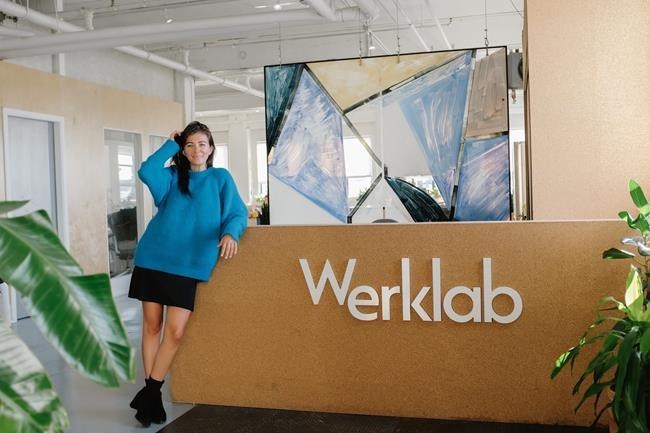TORONTO — When the COVID-19 pandemic struck, Christina Disler mulled whether to close her Vancouver co-working space business because people were so fearful of being in communal offices.
"We lost like 75 per cent of our clients because we didn't have people locked into long-term contracts because... we wanted to provide flexibility," said the owner of Werklab, which specializes in wellness-focused, co-working spaces.Â
"It was really tough."
But more than a year-and-a-half later, her outlook has completely changed.Â
People are returning to co-working spaces, which provide members with desks, boardrooms and other amenities like gyms, kitchens and coffee bars. Many are also considering the spots for the first time as they adjust to long-term remote work or depart office jobs to start companies.
These shifts are proving to be a boon for co-working spaces, which were becoming common before the pandemic wreaked havoc on their business models. Now, their owners are predicting they will hit peak popularity as COVID-19 cases further subside and people seek new ways to work, socialize and venture out after more than a year at home.
Simply put, co-working spaces have gone from a "nice to have" to a need for many, said Disler.Â
"They are saying, 'I need to get out of the house, hunker down, have some accountability from people around and create a boundary between my home and the office,'" she said.Â
"So we've seen an uptick and our offices have both been full."
Disler's also seen plenty of interest in corporate packages for clients who are getting rid of offices but still want to give staff a space to work from.
She doesn't foresee that interest changing any time soon and neither does a 2020 study from Coworking Resources and Coworker.com.
Their research found the number of co-working spaces worldwide is projected to reach 40,000 by 2024 and provide space for five million people, an increase of 158 per cent compared to 2020.
While the industry slowed last year, it predicted a yearly growth rate of 21.3 per cent from 2021 and onwards.
Canada already has 617 co-working spaces, the study found, including sites run by corporate giants like Staples, many catering to women only and others serving specific industries like the arts.
One of the newest additions is the Huddle Sharespace, which opened in November 2019.
The Scarborough, Ont. site, which boasts of desks, board rooms, a fitness facility and lounge, now has more monthly members visiting and day pass sign-ups are on the rise too, said community manager Aleema Khan.
Many are visiting with a refrain similar to what she heard from a landscape designer a few weeks ago.
"He told me he's got a whole house to himself, but he said, 'I need to get out of my house, I need to meet people, I need to talk to people again and I need to feel like there's a world out there," recalled Khan.
These guests are creating a golden opportunity for co-working spaces, said John Trougakos, an associate professor of organizational behaviour and HR management at the University of Toronto.
"There has never been a time where as many people could work from anywhere, as we have right now, and where many people want to and realize they can work from anywhere," he said.
"That really gives these co-working space companies a leg up compared to prior to the pandemic, when there was a smaller niche of people doing this."
But that doesn't mean attracting guests will always be easy for co-working spaces.
Trougakos thinks the outlook on workplaces is "fluid" and could take up to 18 months to develop because it's unclear how many companies will opt for long-term remote work and how many employees will like that model after the pandemic.
"We're kind of at the height of uncertainty," he said.
"It's not totally clear how things will play out, but I definitely think going forward, the opportunity will be greater for these (co-working) companies than it was before."
This report by The Canadian Press was first published Sept. 30, 2021.
Tara Deschamps, The Canadian Press

